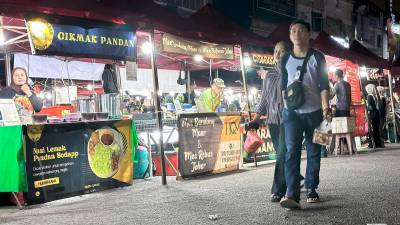PETALING JAYA: Malaysia’s nights are buzzing – from mamak stalls packed at 2am to delivery riders zipping through quiet neighbourhoods. An expert says it is time the country treats this after-dark hustle and bustle as serious business.
Economist Dr Mohamad Idham Md Razak said Malaysia has strong potential to develop a comprehensive night-time economy policy, thanks to its vibrant late-night activity, the recent passing of the Gig Workers Bill 2025 and the rapid growth of 24-hour services.
He pointed out that the idea is hardly new. London, for example, has a Night Time Commission to guide sustainable growth and shape the vision of a 24-hour city.
“This commission was tasked with advising on the sustainable development of the city’s night-time economy and shaping the vision for a vibrant 24-hour city,” Mohamad Idham told theSun via WhatsApp.
He said Malaysia should consider a similarly structured policy, possibly even appointing a “night mayor” to streamline governance.
“However, the idea of appointing such a figure requires deeper and more careful consideration. Its success depends on clearly defined jurisdictions, adequate resources and an inclusive governance framework.
“This ensures the role does not become an added bureaucratic burden but instead acts as an effective facilitator and liaison between stakeholders to drive a sustainable, safe and beneficial night-time economy.”
Such a policy, he added, would be a chance for Malaysia to introduce night-specific safety measures.
“They could include mental health programmes, health incentives for gig workers and mandatory training with stricter monitoring by relevant departments. Ultimately, this would ensure Malaysia not only benefits economically but also sets a strong example in safeguarding worker welfare and safety, regardless of working hours.”
On the ground, businesses are seeing the benefits. Don Ridhwan Don Ramli, 38, manager of Q Bistro Bukit Jelutong – a popular mamak chain in the Klang Valley – said 24-hour outlets serve as a “support system” for night shift workers.
“These places are often the go-to spots, especially as stopovers or meeting points for certain groups, particularly students and workers on night duty. They can also be considered safer spaces compared with other locations.”
But Don Ridhwan stressed that enforcement is key to keeping the scene safe.
“Police patrols would help prevent unwanted incidents such as intoxicated customers. Health officers should also carry out surprise visits outside regular hours, instead of limiting inspections to daytime.”
Meanwhile in Kedah, street burger vendor Muhammad Afiq Hamid, 37, said his stall in Padang Serai still attracts steady crowds even though it is tucked in a residential area.
“Most of my customers are neighbours. Although many of us fall under the B40 group, sales have been encouraging,” he said, adding that he pockets about RM200 a night from just three to four hours of work.
“I do this as a side income, since I work at a factory in Seberang Jaya, Penang, during the day. Food delivery companies have approached me to join their platforms, but because I run the stall alone, I’ve had to turn them down.”
Afiq said enforcement at night is decent but pointed to infrastructure gaps as a big issue.
“It’s about public safety. I’ve witnessed enough accidents while running my burger joint. The government must maintain infrastructure in areas outside the city, like in Padang Serai.”
